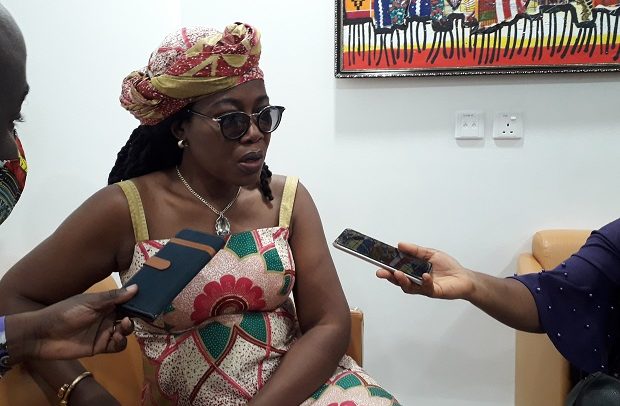GEPA CEO, Dr Afua Asabea Asare granting an interview
The Ghana Export Promotion Authority (GEPA) has initiated processes towards equipping some 20 Ghanaian youth with the needed resources and technical know-how to consider export as a long-term career path.
Beneficiaries of the initiative, who were selected finalists under the Youth in Export Programme (YIEP), were to be mentored and trained within six months by experienced nucleus farmers who specialized in cultivating agriculture produce for exports.
The programme, which was launched in October, last year by GEPA in collaboration with the Youth Employment Agency (YEA), was aimed at attracting Ghanaian youth, especially those with higher level of education, into farming and export of agricultural products.
At the opening of a two-day orientation programme for beneficiaries in Accra on Thursday, the Chief Executive Officer (CEO) of GEPA, Dr Afua Asabea Asare, indicated that the initiative was in line with the President’s industrialization agenda, which among other things, sought to leverage on technology to deliver efficiency in the export sector and also to provide support to start-ups in the agriculture sector.
She urged applicants who could not make it to the final stage of the selection process to not lose hope as the authority would continue to roll out further initiatives aimed at growing the country’s export earnings.
She also encouraged the media to give prominence to programmes such as the YIEP in order to inspire hope and repel doubts associated with farming as a sustainable source of livelihood.

“The media plays a huge role in shaping society’s agenda and we will rely heavily on sharing their success stories to grow our country,” she said.
The Director of Research at YEA, Agya Yaw Nsiah, said the year-on-year growth rate of graduate unemployment had forced the agency to review its activities and come up with new strategic directions that required strong partnership with authorities like GEPA, who helped to reduce trade deficit.
“We realized that for us to make that meaningful impact, we had to position the agency as a facilitator of jobs,” he said.
The new strategic direction, he said, would help end the cycle of youth becoming unemployed after every two years due to legislation that required that youth employed under the agency’s module exited after every two years.
A beneficiary of the project, who was into the cultivation of cassava, Joseph Anyomi Quaicoe, in an interview, said that the decision to start farming while pursuing his tertiary education was due to the lack of ready job after school.
With background knowledge in farming as a young boy, he said that cassava cultivation became a preferred occupation, which had so far been good than anticipated.
By Issah Mohammed


